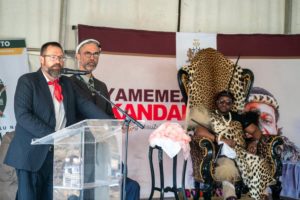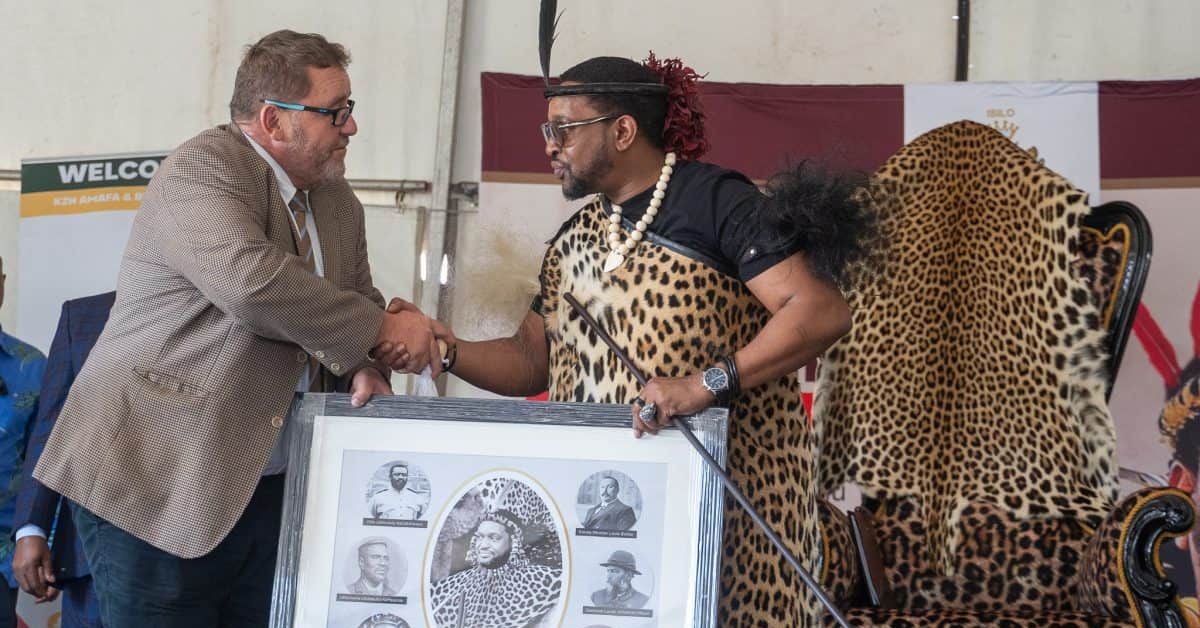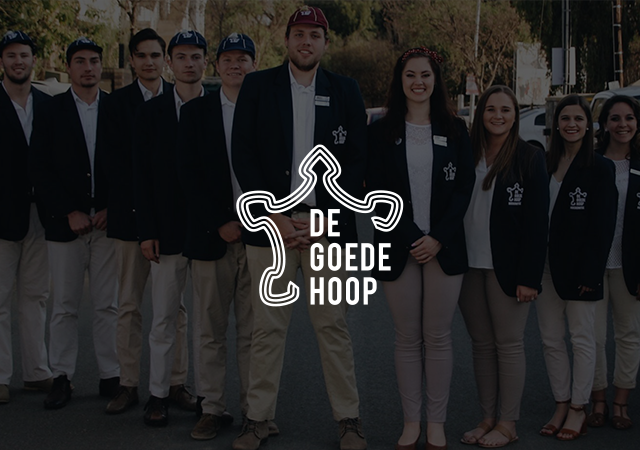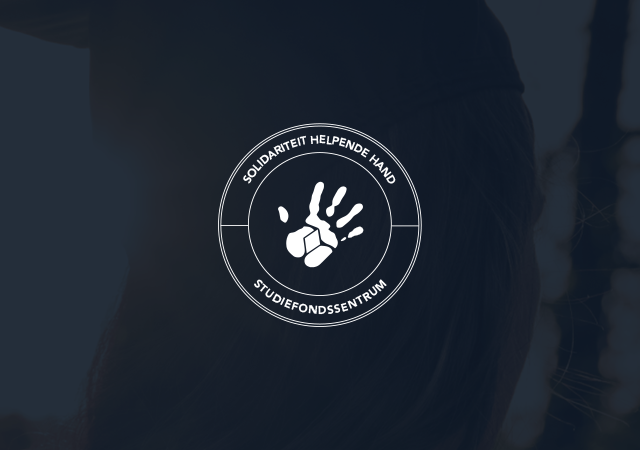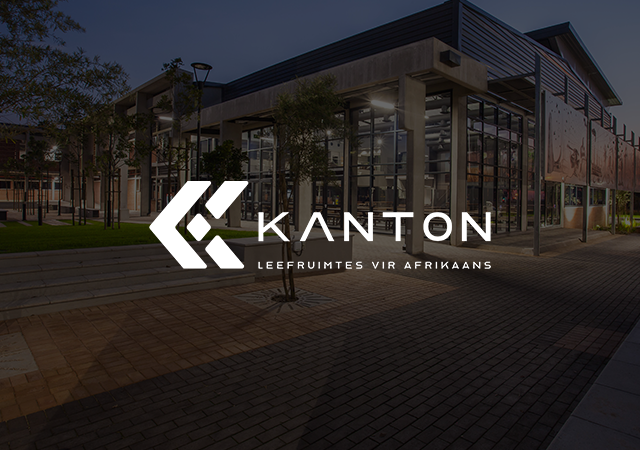Source: Adapted from AfriForum
A commemorative event for the former Zulu King, King Dinuzulu (1868-1913), was held on the Farm Rietfontein (Kwa Thengisangaye on Friday 18 October.
The reigning Zulu King, King Misuzulu KaZwelithini, invited AfriForum (an institution of the Solidarity Movement to the event. For these two parties this marks the beginning of formal discussions on cooperation between the Zulu communities and the Afrikaners.
King Misuzulu Zwelithini wants the talks to focus on cooperation in the fields of the economy, community safety, land management and cultural exchange, as well as other matters of joint interest.
This occasion was celebrated on the farm where King Dinuzulu died in exile on 18 October 1913, exactly 111 years ago.
A brief background on the Afrikaners and the Zulus
Many people who are not all that familiar with the history, are under the impression that the Afrikaners and the Zulus have a history of conflict and that, to this day, they live in animosity. This perception dates back to the times of the Great Trek.
Under the rule of King Dingaan, a cruel Zulu king, thousands of Zulus massacred innocent women, children and families during the Battle of Bloukrans. The Trekkers took revenge at the Battle of Blood River, a battle that claimed the lives of almost 10 000 Zulus.
In the aftermath of these events and King Dingaan’s death, the Voortrekkers, today’s Afrikaners, made peace with the Zulus. The Afrikaners even attended the inauguration of Dingaan’s successor, King Mpande. The Afrikaners and Zulus subsequently fought side by side on numerous occasions and cooperated whenever the opportunity presented itself.
This cooperation and peace clearly manifested in the he relationship King Dinuzulu had with the Afrikaners.
During the Bambata Rebellion against the British colonialists, King Dinuzulu was imprisoned in Newcastle. When South Africa became a Union the new Prime Minister, Louis Botha, ordered the release of the Zulu King.
After his release, King Dinuzulu was allowed to settle on the Farm Rietfontein where he spent his last years. Botha knew him well because, as a young man, Botha was a member of Comdt Lucas Meyer’s commando that supported King Dinuzulu in the victory over the Mandlakazi, a Zulu faction, during the Battle of Spookberg (Tshaneni) in 1884.
During the memorial event this month reference was made to the relationship between General Louis Botha and King Dinuzulu.
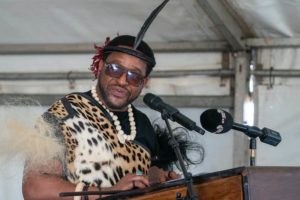
What does the future hold?
In his speech, the King emphasised among other things that the “historical alliances” that existed between the Afrikaners and the Zulus are “a reminder of the complexities and nuances of our past.”
“The relationships that existed between King Mpande, King Dinuzulu and the Boer leaders remind us of the intricate web of diplomacy and steadfastness that characterised our history,” King Misuzulu KaZweletini said.
According to Mwalela Cele, deputy head of research and innovation at Amafa, the KwaThengisangaye Site is a confirmation of the role that heritage can play in promoting peaceful coexistence.
“The site and the history and the heritage associated with it confirm that that there is more that unites us than what divides us in this beautiful country. It is very important to Amafa that sites such as this one are preserved and that memorials and plaques are erected so that they can be preserved for generations to come and so that people will be able to know their history,” Cele explained.
Barend Uys, head of intercultural relations and cooperation at AfriForum mentioned at the event that the present generation, like previous generations have the responsibility to ensure a future for generations to come. He maintains, that all peoples in the country are facing major challenges but that solutions beckon
AfriForum believes that all cultural communities should work together on a basis of mutual recognition and respect on matters that are important to us. The historical issue our generation has to resolve is the peaceful co-existence of all the peoples calling the southern tip of Afrika their home. What is happening here today can serve as a good start to ensure a peaceful co-existence. We are building trust. We are engaging in difficult talks that are necessary to achieve genuine reconciliation between peoples.”
Uys welcomed King Misuzulu’s positive response to a request for dialogue with the Afrikaans community.
“We are keenly looking forward to engage in talks with the king about issues that affect our respective communities, and to cooperate with the king,” Uys explained.
“AfriForum and Afrikaners choose to continue to exist with a sense of justice. We choose mutual recognition and respect. We choose a peaceful coexistence. What we are experiencing is that the other peoples in the country and especially the traditional leaders have also made the choice, and today’s celebrations were an exceptional example of that. We are also very grateful for the privilege of having King Misuzulu attending the occasion where he acted as keynote speaker.
